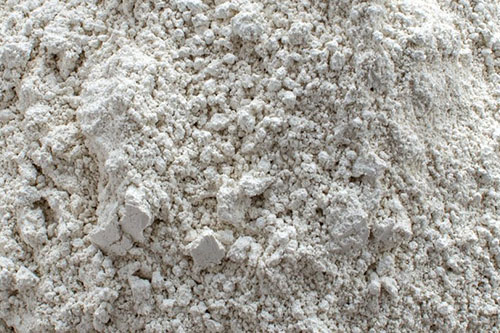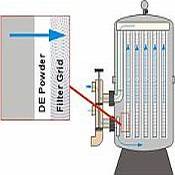Diatomaceous Earth Filtering: A Natural Solution for Effective Filtration
Unlocking the Conveniences of Diatomaceous Earth Filtering for Tidy and pure Water
The expedition of diatomaceous planet (DE) filtering system presents a compelling alternative for those looking for efficient and lasting water purification methods. With its unique structure that catches a wide variety of contaminations, DE filtering system not just boosts water high quality however also provides advantages in long life and energy efficiency over conventional systems. As the need for clean water remains to increase worldwide, recognizing the diverse applications and advantages of DE filters may reveal critical understandings for both house and commercial use. What certain elements should be thought about when picking the ideal DE filter for your requirements?
What Is Diatomaceous Planet?
Diatomaceous earth, frequently referred to as DE, is a normally happening stratified rock composed mainly of the fossilized remains of small, aquatic microorganisms recognized as diatoms. These single-celled algae are abundant in silica, which is the main part of DE. The unique framework of diatomaceous planet consists of microscopic, permeable fragments that offer a high area, making it an effective filtering tool.
DE is commonly collected from old lake beds and down payments, which have collected over thousands of years. It looks like a fine, white to beige powder, and its chemical composition mainly consists of silicon dioxide, along with trace quantities of different minerals. This structure is what gives DE its exceptional properties.
In enhancement to its application in water purification, diatomaceous planet is made use of in a selection of industries, consisting of farming, food storage, and insect control. Its capability to absorb dampness and its unpleasant top qualities make it an important source in these areas. On the whole, diatomaceous planet sticks out as an eco-friendly alternative for numerous applications as a result of its all-natural origin and effectiveness in filtering processes.

How Diatomaceous Earth Filtering Functions

When water travels through a diatomaceous planet filter, the fine particles are captured in the detailed network of small pores. The size and shape of these pores are critical, as they are made to target certain pollutants while enabling tidy water to move with. As water moves through the filter medium, the mechanical action of the diatomaceous earth captures larger bits, while smaller sized contaminants are soaked up or physically obstructed.
Additionally, the surface area offered by diatomaceous earth is comprehensive, improving its capacity to hold impurities. This leads to a steady build-up of entraped particles, which can be regularly removed with a backwashing procedure. This method makes sure constant purification performance and adds to the total efficiency of preserving clean and pure water.
Advantages Over Conventional Filtration
When comparing diatomaceous planet filtering to traditional purification techniques, numerous advantages arise that improve water purification efficiency. Among the main advantages is the premium filtering capability of diatomaceous earth (DE), which can remove smaller sized particles and impurities click this that conventional filters might miss. The visit here microscopic structure of DE enables it to catch pollutants, consisting of bacteria and protozoa, leading to cleaner water.
Additionally, diatomaceous planet filters have a tendency to have a much longer lifespan than conventional media, reducing the frequency of substitute and maintenance. This longevity not just lowers operational expenses however also lessens waste, adding to more sustainable techniques. DE filters additionally run at reduced stress, which can lead to energy financial savings in large-scale applications.
One more considerable advantage is the convenience of diatomaceous earth. It can be used effectively in different contexts, from municipal water treatment centers to specialized commercial applications (diatomaceous earth filtering). The all-natural make-up of DE makes it an environment-friendly option, totally free from dangerous chemicals and toxins often connected with artificial filtering systems
Applications in Household and Industry
Countless applications of diatomaceous planet filtering can be found in both household and industrial settings, highlighting its flexibility and efficiency in water filtration. In property settings, diatomaceous planet (DE) filters are commonly utilized in swimming pools, efficiently capturing debris and microorganisms, thus keeping water clarity and hygiene. Additionally, many houses utilize DE in home water purification systems, where it serves to remove pollutants, sediment, and unsafe microorganisms, ensuring risk-free drinking water.
In industrial applications, diatomaceous planet filtering system is important to different markets, consisting of food and beverage production, pharmaceuticals, and wastewater treatment. In the food industry, DE is used in the filtration of beer and wine, helping with the elimination of yeast and various other particulates while protecting the drink's taste account. In addition, in wastewater therapy facilities, DE filters play a critical function in improving water top quality by capturing pollutants and helping with the recycling of water resources.
The efficiency of diatomaceous planet in both home and commercial applications highlights its important function in advertising tidy water gain access to, adding to public health, and sustaining lasting methods.

Selecting the Right DE Filter
Picking the appropriate diatomaceous planet (DE) filter is vital for making certain optimal water purification, whether for commercial or household use. diatomaceous earth filtering. The choice of a DE filter depends upon a number of essential factors, including the particular application, circulation price requirements, and the desired level of filtering
First, examine the quantity of water to be filtered. For household usage, smaller sized filters suffice, while industrial applications may necessitate larger, high-capacity systems. Next, take into consideration the circulation price; it is very important to pick a filter that can take care of the called for throughput without endangering water high quality.
Furthermore, assess the filtering degree; DE filters been available click site in different grades, affecting the elimination of particulates and impurities. Higher-grade filters are perfect for applications needing stringent pureness degrees.
Finally, take into consideration the upkeep needs and the schedule of replacement DE powder. Filters that are simpler to maintain and have conveniently offered products will certainly minimize downtime and operational costs. By carefully taking into consideration these elements, one can pick a DE filter that meets details requirements, guaranteeing the delivery of secure and tidy water.
Verdict
In recap, diatomaceous planet filtering stands for a significant development in water filtration innovation, offering boosted efficiency and efficiency in catching contaminations. Embracing diatomaceous earth filtering system can lead to enhanced public health and wellness end results and greater access to clean water.
The expedition of diatomaceous planet (DE) filtering system provides an engaging choice for those looking for sustainable and effective water filtration techniques.When comparing diatomaceous planet filtering system to traditional filtration methods, a number of advantages arise that boost water filtration performance.Countless applications of diatomaceous planet filtering system can be discovered in both home and industrial setups, highlighting its versatility and performance in water purification. In household atmospheres, diatomaceous planet (DE) filters are typically employed in swimming pools, effectively capturing debris and microbes, thereby maintaining water quality and health. In wastewater therapy facilities, DE filters play a critical function in boosting water top quality by capturing pollutants and assisting in the recycling of water resources.